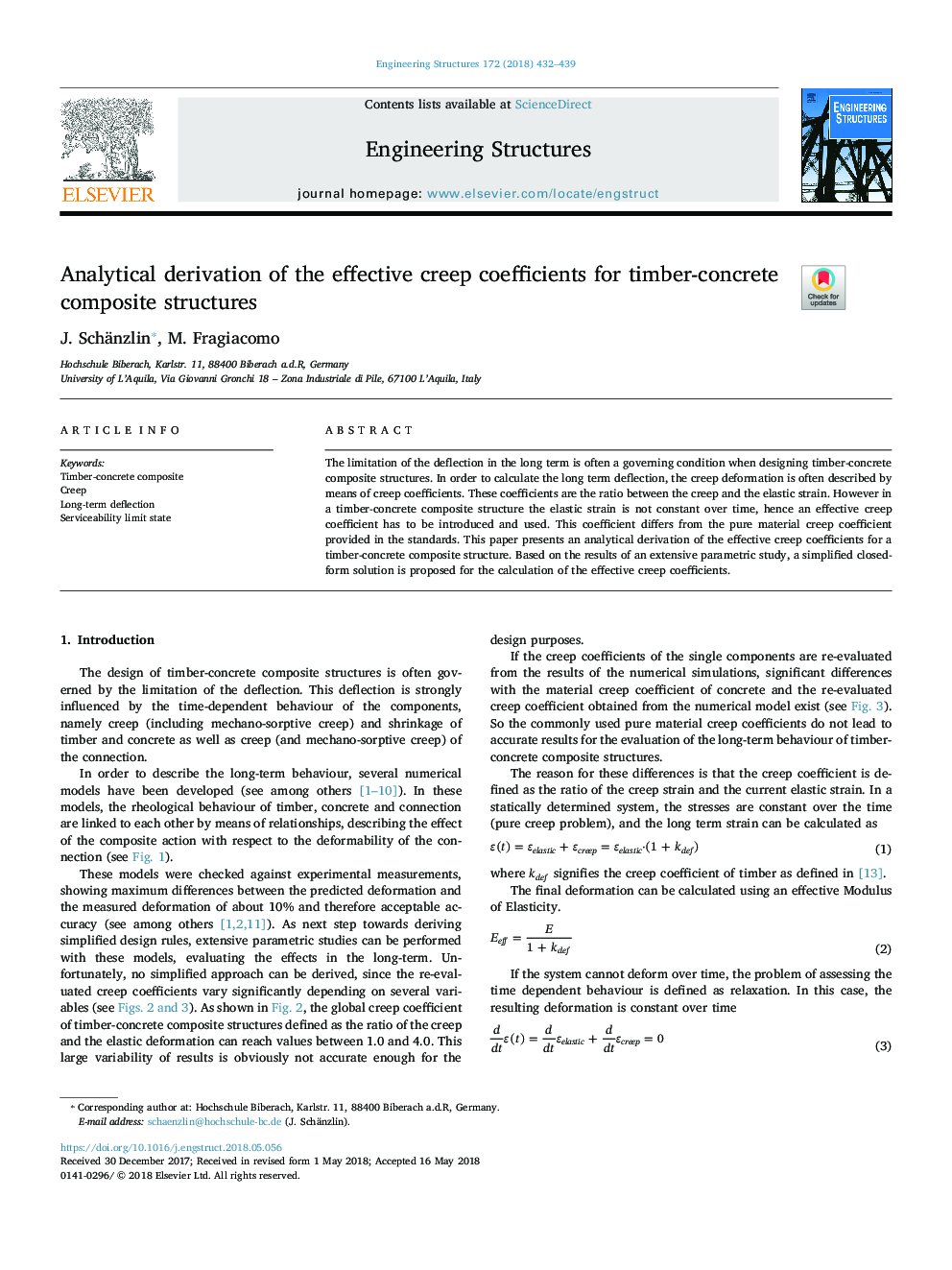| Article ID | Journal | Published Year | Pages | File Type |
|---|---|---|---|---|
| 6736088 | Engineering Structures | 2018 | 8 Pages |
Abstract
The limitation of the deflection in the long term is often a governing condition when designing timber-concrete composite structures. In order to calculate the long term deflection, the creep deformation is often described by means of creep coefficients. These coefficients are the ratio between the creep and the elastic strain. However in a timber-concrete composite structure the elastic strain is not constant over time, hence an effective creep coefficient has to be introduced and used. This coefficient differs from the pure material creep coefficient provided in the standards. This paper presents an analytical derivation of the effective creep coefficients for a timber-concrete composite structure. Based on the results of an extensive parametric study, a simplified closed-form solution is proposed for the calculation of the effective creep coefficients.
Related Topics
Physical Sciences and Engineering
Earth and Planetary Sciences
Geotechnical Engineering and Engineering Geology
Authors
J. Schänzlin, M. Fragiacomo,
